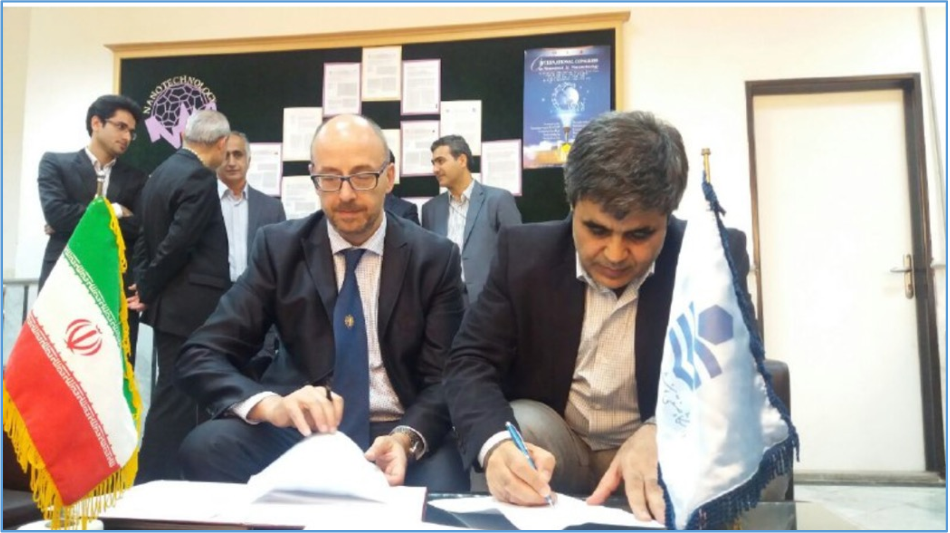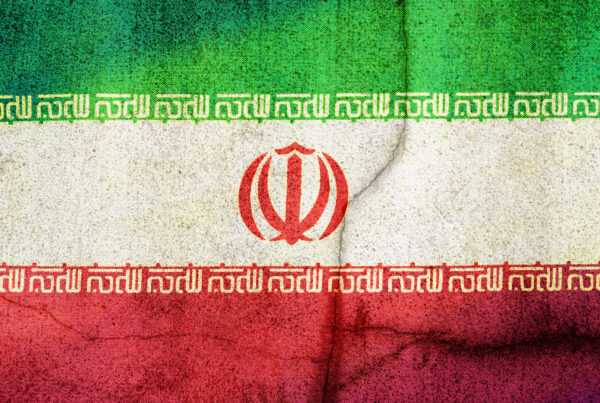The Iranian military and security apparatus’ relationships with Iranian universities extends beyond the handful of schools sanctioned by the US and the EU for facilitating weapons development-related research. Among the hundreds of Iranian government-funded research centers within Iran’s universities, at least three have received funding for the purpose of supporting military and security-related objectives. One of these three military-focused research centers (the Nanotechnology Research Institute, hosted by Babol Noshirvani University of Technology) itself has cooperated with universities in Europe and East Asia, although it is unclear if the collaboration with foreign universities occurred simultaneously with the military-focused research. More broadly, Babol Noshirvani has also collaborated with European universities. Both Shahrood University of Technology and Isfahan University of Technology, which host the other two military-focused research centers, have also collaborated with parts of the Iranian-military industrial complex, including US-sanctioned defense manufacturers.
One of the goals of Babol Noshirvani University of Technology’s Nanotechnology Research Institute is “to develop nano devices and nano-systems” for the defense industry, according to a 2016 directory published by the Iranian Ministry of Science, Research, and Technology (MSRT). The institute has cooperated with Lund University in Sweden, University of Birmingham in England, University of Putra Malaysia (UPM), and Tarbiat Modares University in Tehran. It is unclear, however, if the institute has simultaneously pursued these defense-related objectives while collaborating with these foreign universities. Besides the institute, Babol Noshirvani University of Technology has also maintained foreign ties of its own – in 2016, the university collaborated with at least two Italian universities: Camerino and Macerata University for the purpose of exchanging students and research.

Babol Noshirvani University of Technology signed an agreement with two Italian universities in 2016.
Shahrood University of Technology’s Research Center of Floating Propellant cooperates with “major naval and military industries,” and develops laboratory samples and provides practical testing of “electric vehicle propulsion systems,” according to the same 2016 MSRT directory. Beyond the research center, Shahrood University of Technology maintains ties with an important defense electronics manufacturer, the U.S. Treasury-sanctioned Iran Electronics Industries (IEI). In February 2023, the university signed an MoU with the Iran Electronics Industries (IEI) related to electronic and telecommunication projects. According to the agreement, the university would provide the facilities needed to increase the operational capability of the country’s electronic industry.
According to the institute’s website, the Isfahan University of Technology (IUT), Information and Communication Technology Institute is involved in the country’s “air defense operations center (ADOC)” and “electronic warfare.” It also helps identify and address the “essential needs” of the country’s “defense industry,” according to the 2016 MSRT directory. Like Shahrood University of Technology, IUT has collaborated with an important part of the Iranian military-industrial complex. During the 2021-2022 fiscal year, the University received funding for military research from the Marine Industries Organization, which builds submarines and surface combatants for the Iranian military and security apparatus.
Iran’s universities of technology play a key role in the country’s military research and development cycle and these examples suggest that this is true even of smaller or lesser-known institutions and research centers. While it is not clear whether these institutes have leveraged their foreign connections to benefit Iran’s armed forces, university-led international scientific exchanges remain a relatively open opportunity for an increasingly isolated Iran.
Sources available upon request.






